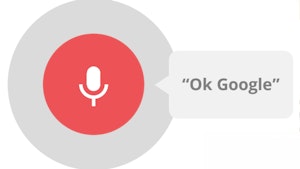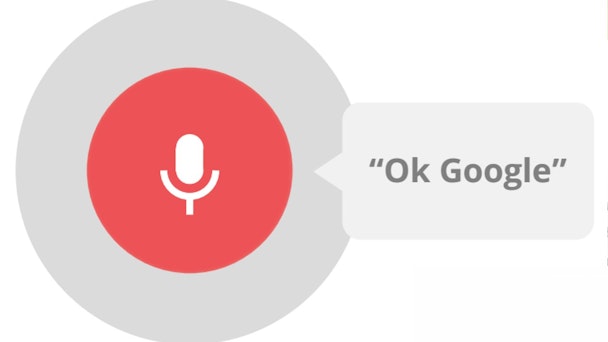What is the opportunity for advertisers as search moves towards voice-based interaction?
The above is one that has been one of the key questions bubbling under the surface of the digital industry since the introduction of interfaces such as Apple’s Siri, etc, came on to the market.


According to research 41% of the US population uses voice search on a daily basis
With Amazon’s Alexa winning the lion’s share of the plaudits at this year’s Consumer Electronic’s Show (CES), and followed quickly by the likes of Google Home, etc, the urgency to resolve such a quandary is clear.
For instance, to copy and paste the current default mode for monetizing desktop search engines, ie a search term is entered with both paid-for and organic results returned in a mix that could be described as ‘native’, is unlikely to prove a satisfactory experience.
Even Google, a company whose market share is well in advance of 50%, and also reports that 41% of the US population uses voice search on a daily basis, has yet to crack the conundrum.
Indeed when the above is considered with the parallel rise of adblocking, talk of the ‘adpocalypse’ may not seem such a far-fetched notion. Ashley Schwartz, a regular contributor to The Drum and and chief executive of Furious Corp, sums up the challenge to advertisers and media owners alike.
Writing previously for The Drum, she argued: “The most apparent impact is for paid search, the tried and trusted advertising medium that seemed to be protected from disruption and a pure cash cow for Google and others.
“If we no longer rely on looking at our devices to search or interact with the internet, what is the impact on paid media? I can’t imagine a voice response to a search query providing me first with a paid audio ad. With the primary human-to-machine interface being voice, the opportunities to deliver ads to appear become less in both and frequency.”
Google doesn’t know (yet) but is looking into it

L-R: Mike Grehan, Acronym Media; Purna Virji, Microsoft; Christina Connor, DoubleClick; Larry Kim, WordStream; Duane Forrester, Yext
This topic was broached by panel participants at an event marking The Drum Search Awards (see image above) amid a wider debate where participants discussed the potential business models, and pitfalls, facing the industry.
Christina Connor, DoubleClick Search, global product lead, told attendees the outfit was considering a number of factors before looking into commercializing this emergent consumer behavior, such as “what kind of questions people ask, and “how that conversation evolves over time.”
The aim of which is to balance the optimal user experience along with the healthiest commercial model (a juggling act Google has since its earliest inception). “We want to understand how people use search [not just on voice but across channels], and then we can start to commercialize it… we’re not ready yet,” added Connor.
The fundamentals of search may have to change
Fellow panelists Purna Virji, Microsoft senior training manager, and Mike Grehan, Acronym Media, managing director, offered their respective opinions on how the seismic change in consumer behavior may mean that those on the commercial end of internet monetization will have to alter their pre-existing modes of business.
Both said that while the pay-per-click (PPC) model is old, and in line for disruption, with Grehan pointing out that the shift from ‘clicking’ to ‘talking’ meant that PPC “has to disappear” – although some participants argued that the PPC model could be altered to “pay-per-command.” Such a move would involve the industry’s major search engine providers effectively pivoting towards an affiliate marketing.
The end of SEO?
Meanwhile, fellow panelist Larry Kim, Larry Kim, WordStream, founder, and chief executive of Mobile Monkey, said the challenge posed by an internet where the user-interface is not desktop-based also poses challenges to brands using search engine optimization techniques.
“If I’m going to make a bet here, I would imagine that Google will not want to destroy their $70bn of revenue streams [sic] business [see here for Google revenues], so maybe they’ll just put a voice ad [in response to a voice-activated search request] I could see that,” he said.
“But are they going to want to add 10 organic answers? Probably not.”
However, not all participants envisaged the ‘apocalypse’ scenario with Duane Forrester, Yext, vice president of industry insights, the leading voice on the panel when it came to the potential for the use of artificial intelligence (AI) providing a more rounded user experience, and one that could see users interact with online services across devices.
“We do start to see a point where we get into whole-home experiences, where your experience is not just Google Home saying something to you, or putting something on the app on your phone,” he said.
“For instance, it could show you something on your television and all of your options, and the systems are smart enough to know me and what my preferences are.”
The panel took place ahead of judging for The Drum's Search Awards, the winners of which will be announced at an awards ceremony hosted on September 20 in New York City
